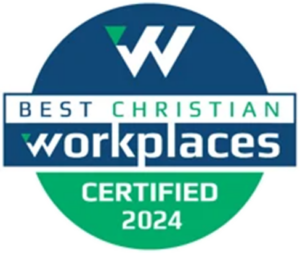So what sort of practices does Miracle Hill Thrift NOT support? Here are a few shocking global atrocities created or furthered by the retail fashion industry ~ all of which can be significantly decreased through local donating and thrift shopping.

At Miracle Hill Ministries, our tagline is pretty clear on the 3 major services we provide as a nonprofit organization:
Shelter, food, and miracles. Every day.
And a lot of the support we receive is because folks who give thrift donations or shop in our stores believe in the cause of serving homeless children and adults across Upstate, SC.
But let’s take things a step further and explore 3 practices you actually fight every time you donate to MHThrift or go thrifting for your clothing and household needs.
1. UNfair Trade
Thrifted clothing is often referred to as one form of ethical fashion and there’s a reason for that. The fast fashion industry that rolls out 50-100 micro “seasons” per year, is on the fast track to total disregard for human life. Many of the factories located in third world regions are run on a shoe string budget with inadequate machinery in unsafe conditions. And the local staff employed in these facilities are often mistreated and under payed. In fact, this is such a serious problem that a documentary was released this year (‘The True Cost,’ below) to expose the unthinkable practices that have become so common for the sake of consumerism. But when you thrift shop, you are buying reusable, pre-owned items, not creating a greater demand for faster, high-volume retail production.
2. Child Labor
Not only do these factories compensate their workers with next to nothing, but they also employ children. A workhouse is not something from the dark ages or some pre-modern era. They are scattered across the globe and running quite lucratively (for some), and dangerously – often at the expense of children’s wellbeing and lives. In 2012, a 12 year-old boy who was held in captivity to a cotton gin owner in Gujarat, India, was freed by the International Labor Rights Forum. Unfortunately, he had already lost an arm in a ginning accident.*

3. Environmental Waste
Environmental waste is greatly reduced with every thrift store that opens and here’s how: the most obvious benefit to the environment is that unwanted clothing and other second-hand items are kept out of landfills. But in addition, no new resources are used in the production of these reused items. So that thrifted blazer you grabbed for the office, and the solid oak armoire you purchased for the master bedroom? No more trees were needlessly processed or pollution created in the reuse of any of this merchandise.
In Other Words…
Your thrift shopping keeps you under budget and fights homelessness in your community, but it also fights the destruction and misuse of lives and resources internationally.
Buying New?
An important question that remains is: how do pre-owned goods exist without first being new items? Well, they don’t. But the good news is there are many Fairtrade, sustainable designers and sellers emerging (list linked below). There are also locally produced garments and home goods here in SC and in many other regions, where shopping supports local economic growth. So even when you need to buy new, you can do it right. And when you’re done using that item…
Let us pick it up from your home, or drop it by one of our locations for reuse.
Buy Smart.
Download the Free2Work app (a project of NotForSale) on your smartphone and discover the source of a new item – from apparel and toys, to food and electronics – before you buy it. You can scan the barcode of a product in-store, or browse Fairtrade brands on the app before you shop.
Read these tips for smart shopping and find a list of ethical brands (Patagonia is a personal favorite) here on The True Cost website.
The *International Labor Rights Forum is another great resource website with helpful tools.
Stay Informed.
For more info about the negative effects of the retail fashion industry, invest a few moments of your time in the videos below:
Trailer, ‘The True Cost:’
Review by Vlogger Melissa Alexandria:
https://www.youtube.com/watch?v=sAlFiykb66U
Let’s take the high road together. Comment below with your thoughts, or other ways we can all support equal rights and reduce waste ~ locally and internationally.
Until next time,
Jenn









